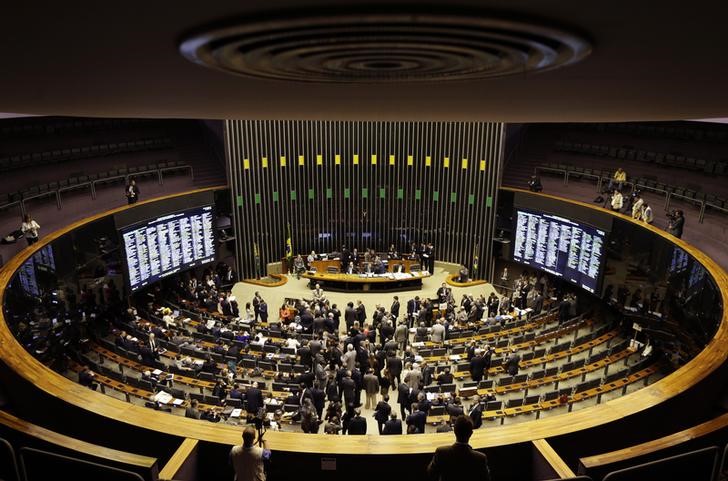Five Palestinians from the Israeli-occupied West Bank, along with the councils of three villages they hail from, filed a formal regulatory complaint in Germany accusing the media giant Axel Springer of contributing to human rights abuses in Palestine. The villagers said that Axel Spinger’s Israeli subsidiary Yad2, a classified ads platform akin to Craigslist, enables Israeli settlements in the West Bank.
The Palestinian complainants cited Yad2’s role in hosting listings, sometimes for a fee, that facilitate sales, rentals, and new construction projects in Israeli settlements, which are considered by most countries of the world to be illegal under international law.
Filed by the Jerusalem Legal Aid and Human Rights Centre on behalf of the Palestinians, the complaint says that Yad2’s facilitation of settlement activity — which was first reported by The Intercept — fuels Israeli land grabbing and therefore violates Germany’s Supply Chain Due Diligence Act. Passed last year, the law requires German companies to identify and mitigate human rights risks within their global supply chains, including in subsidiaries which they control.
“Contributing to land theft and unlawful evictions of Palestinians in the West Bank would be a direct violation of the Supply Chain Act,” said Annabell Brüggemann, the legal adviser on business and human rights at the European Center for Constitutional and Human Rights, an independent nonprofit based in Berlin. “Springer must therefore ensure that it does not contribute to the maintenance or deepening of these abuses through its business activities.”
The complaint will go through an initial period of review by regulators to examine its merit, particularly looking at the level of Springer’s influence over Yad2, before it becomes a full-fledged investigation. Julia Sommerfeld, a spokesperson for Axel Springer, said on Saturday that the company had not received any information about the complaint.
The complainants, who hail from the West Bank communities of Iskaka, Marda, and Taybeh, are calling for action from Germany’s Federal Office for Economic Affairs and Export Control, an agency under the Federal Ministry of Economics and Technology that is known as BAFA.
They are demanding accountability, including fines of up to 2 percent of Springer’s annual revenue — a financial penalty that, if taken seriously, could run into the millions of euros — and an immediate suspension of all Yad2 listings tied to settlements.
“If BAFA acts decisively, illegal listings could be removed within days.”“If BAFA acts decisively,” said Robert Grabosch, one of the lawyers supporting the plaintiffs with their complaint, “illegal listings could be removed within days.”
Showing Springer’s decisive influence with its subsidiary could lead BAFA to force the removal of the offending real estate listings, said Brüggemann, the legal expert.
“Based on everything that is known about the case, I expect the BAFA to take the complaint very seriously,” she said. “This would mean ensuring no further ads for properties in occupied territories can be placed on Yad2.” (BAFA did not immediately respond to a request for comment.)
While BAFA’s bureaucratic processes are slow — similar complaints have dragged on for many months without resolution — Brüggemann said that, in urgent cases, the regulatory body has the authority to impose provisional measures.
“When legal violations risk becoming irreversible,” she said, “BAFA can act quickly.”
Grounded in German Law
The complaint draws on the International Court of Justice’s July 2024 advisory opinion, which outlined the legal consequences of Israel’s practices in the occupied Palestinian territories. The international court reaffirmed the obligation of states to prohibit business activities that sustain Israel’s illegal occupation.
The Palestinians’ complaint, however, is grounded firmly in German law, invoking the Supply Chain Due Diligence Act’s requirement that corporations ensure their global operations do not contribute to human rights violations.
The complaint includes maps that starkly depict the Palestinians’ case: Yad2 property listings in the settlements of Ariel and Rimonim encroach on land belonging to Iskaka, Marda, and Taybeh, the Palestinian communities whose village councils joined the Palestinian villagers in filing the case.
The case for Springer to halt Yad2’s settlement listings comes at a time of intensifying violence in the West Bank. Since October 2023, following Hamas’s attack on southern Israel and the unrelenting assault on Gaza in response, Israeli settlers have launched over 1,400 violent attacks, according to the United Nations.
Israeli Finance Minister Bezalel Smotrich, a far-right coalition member and himself a settler, has made explicit calls for annexing the West Bank — emboldening settlers to launch attacks and seize land.
Axel Springer is a major global player in news media. Internationally, the company owns a host of influential outlets, including Politico and Business Insider in the U.S.
Europe’s largest publisher, the conglomerate also owns several German outlets, including Bild, the country’s biggest newspaper. Springer also owns Upday, Europe’s largest news aggregator app.
Springer enshrines support for Israel in its mission statement, formal internal guidance that the company calls its “essentials.” All of Springer’s subsidiaries and employees are bound to uphold this stance. In October 2023, the firm fired a Lebanese employee who questioned the pro-Israel policy.
Under a deal agreed to this fall, the U.S.-based investment firm KKR and Canada’s CPP will take control of Axel Springer’s lucrative classified ads business, including the real estate platform Aviv, which runs Yad2, by the middle of next year. Axel Springer’s German owners, Mathias Döpfner and Friede Springer, will retain a minority stake in the ads business controlled by KKR, which is itself currently a minority stakeholder in Springer. Whether BAFA will take action before the deal is consummated remains to be seen.
Critics say Springer’s media empire holds disproportionate sway over German discourse on the Israeli-Palestinian conflict. Bild, for example, has faced criticism for fostering anti-Palestinian bias. At Upday, The Intercept previously reported, company leadership handed down directives early in Israel’s war on Gaza that prioritized the toll on Israelis over the toll on Palestinians.

 German (DE)
German (DE)  English (US)
English (US)  Spanish (ES)
Spanish (ES)  French (FR)
French (FR)  Hindi (IN)
Hindi (IN)  Italian (IT)
Italian (IT)  Portuguese (BR)
Portuguese (BR)  Russian (RU)
Russian (RU) 





:strip_icc()/i.s3.glbimg.com/v1/AUTH_59edd422c0c84a879bd37670ae4f538a/internal_photos/bs/2023/l/g/UvNZinRh2puy1SCdeg8w/cb1b14f2-970b-4f5c-a175-75a6c34ef729.jpg)










Comentários
Aproveite ao máximo as notícias fazendo login
Entrar Registro